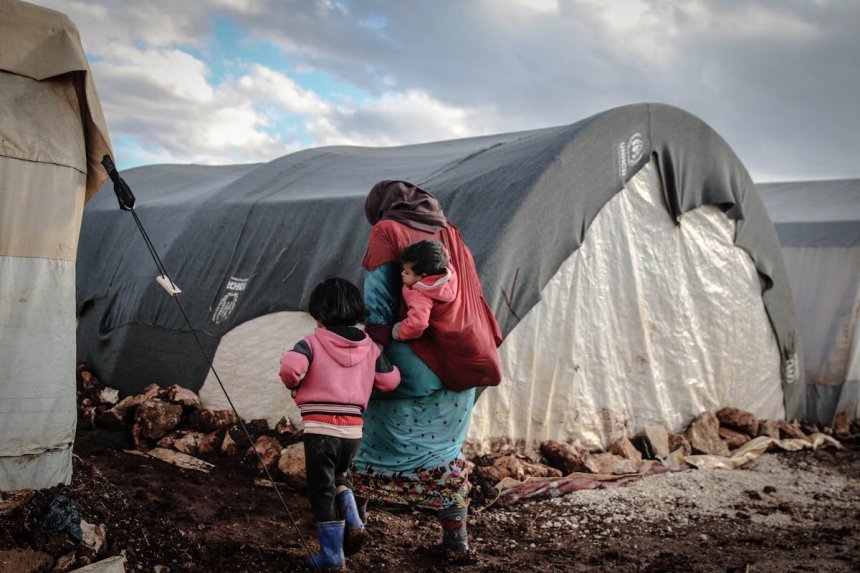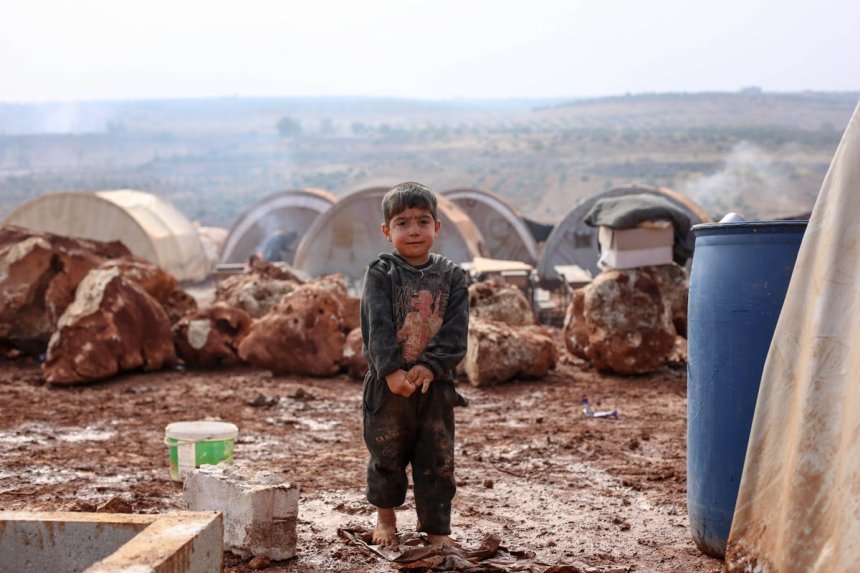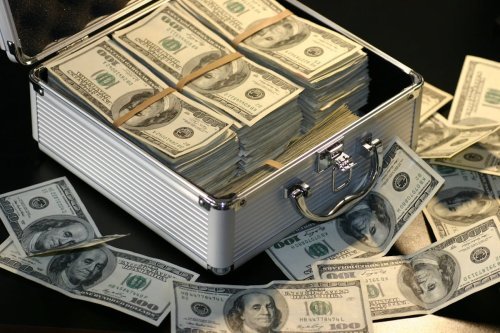Refugees Aren’t Just a Crisis—They’re the Price of a Broken Global Economy
We’ve been told refugees flee because of bombs, dictators, or religious persecution. And yes, those things matter. But if you dig a little deeper—beyond the headlines and the hashtags—you’ll find something darker. Something structural. These mass displacements are symptoms of a world economy that’s wildly out of balance.

Here’s the truth no one wants to say out loud: Most refugee crises aren’t about war—they’re about money.
We’ve been told refugees flee because of bombs, dictators, or religious persecution. And yes, those things matter. But if you dig a little deeper—beyond the headlines and the hashtags—you’ll find something darker. Something structural. These mass displacements are symptoms of a world economy that’s wildly out of balance. Countries collapse under debt. Food prices spike. Climate disasters wipe out livelihoods. And guess what? People run.
Ready to dive in? Let’s tear the bandage off.
The Economic Bombs No One Talks About

Let’s be real—most people don’t pack up their families, cross deserts, and risk drowning just for “a better life.” They’re escaping desperation. And that desperation? It’s usually man-made. Or rather—market-made.
When Markets Crash, Borders Break
Consider Venezuela. Lebanon. Sudan. Budgets were the first thing that caused their collapses, not gunfire. The inflation in Venezuela did not occur suddenly. It was developed over many years of reliance on oil, manipulation of the currency, and—yes—external sanctions. The outcome? People starved when grocery shelves were cleared.
The Silent Killer: Food Price Shock
The Arab Spring of 2022? Yes, it was inspired by a Tunisian fruit vendor. However, there was a huge factor behind that spark: growing food costs. Poor families spend 70–80% of their income on food alone when wheat and maize prices skyrocket. And at what point does that become impossible? They object. Or they run away.
The worst part is that those price increases aren't random. Trade restrictions, climate change, and speculators all have an impact. What you eat for dinner in Cairo, Mogadishu, or Port-au-Prince is determined by global markets.
Climate Disaster + Economic Fragility = Mass Exodus
We keep calling climate refugees a “future” problem. News flash—it’s already here.
Farms Are Failing. People Are Moving.
Drought is destroying harvests from Central America to the Horn of Africa. Houses are being destroyed by floods. Furthermore, poor countries lack the resources and infrastructure necessary for reconstruction. When your land stops producing food, what do you do? You move.
Let’s take Guatemala. Climate shocks have destroyed crops for years. Add in corrupt governments and weak economies? Boom. A wave of migrants heads north. And then we call it a border crisis instead of a climate-economic meltdown.
Debt Traps and Broken Aid: How the System Keeps Failing the Poor
Here’s a dirty secret: Many countries producing refugees are drowning in debt. Not just a little. Crippling, can't-breathe kind of debt.
The Global South Pays, Then Pays Again
Countries like Pakistan, Kenya, or Egypt owe billions to the IMF or World Bank. And the loan conditions? Brutal. Cut subsidies. Slash healthcare. Sell public assets. In theory, it’s to fix the economy. In practice? It hurts the poorest first. Education tanks. Healthcare disappears. Unrest brews.
And they flee when disturbances turn violent or when families are unable to buy food. Then wealthy nations try to solve the issue with a little aid. You do realize what's going on here? The cycle continues. And the West continues to reap the rewards.
Refugees Don’t Drain Economies—They Fill the Gaps
This one’s gonna mess with some heads: Refugees are often good for the economies that receive them.
Cheap Labor, Full Factories
Germany absorbed over a million Syrian refugees. Within five years, 400,000 of them had jobs. Many took up roles in aging workforces or shrinking rural industries.
In the U.S., undocumented immigrants and asylum seekers do the jobs Americans won’t—often underpaid, often in dangerous conditions. But instead of gratitude? They get demonized.
Why? Because blaming “outsiders” is politically easier than fixing wage inequality or bad immigration policy.
Entrepreneurship and Economic Uplift
Data shows refugees open businesses at higher rates than native-born citizens in many countries. They’re not stealing jobs—they’re creating them. Wild, right?
Maybe it’s: Can we afford to keep ignoring their value?
The “Crisis” Narrative Is a Distraction—And It’s Costing Lives
Every time a boat sinks or a caravan hits the news, politicians cry “crisis.” But crisis implies something unexpected. Temporary. Fixable.
Let’s be honest—this isn’t temporary. It’s structural.
H3: Walls Don’t Stop Economics
You can build walls, detention centers, naval blockades. But if people are fleeing economic collapse, they’ll find a way. Because survival always trumps policy. And yet, most funding still goes to border patrols, not root causes.
It’s like bailing water from a sinking boat without plugging the hole.
So… What Now?
You’re probably wondering: Can we fix this? Or are we just stuck watching the world burn?
Well, here’s the twist.
It’s not just about charity. Or compassion. It’s about self-interest. Because if we don’t address the global economic system—the debt, the climate, the trade injustice—then these refugee flows will never stop. They’ll grow.
Here’s what actually works:
- Debt forgiveness for the most vulnerable nations
- Fair trade deals that stop exploiting poor economies
- Real climate financing, not just greenwashing at global summits
- Resettlement programs that match refugees with shrinking labor markets
- Rewriting the aid system so it builds independence—not dependence
Radical? Maybe. But so is watching tens of millions roam the Earth, stateless and starving, while we argue about visas.
Share
What's Your Reaction?
 Like
0
Like
0
 Dislike
0
Dislike
0
 Love
0
Love
0
 Funny
0
Funny
0
 Angry
0
Angry
0
 Sad
0
Sad
0
 Wow
0
Wow
0











